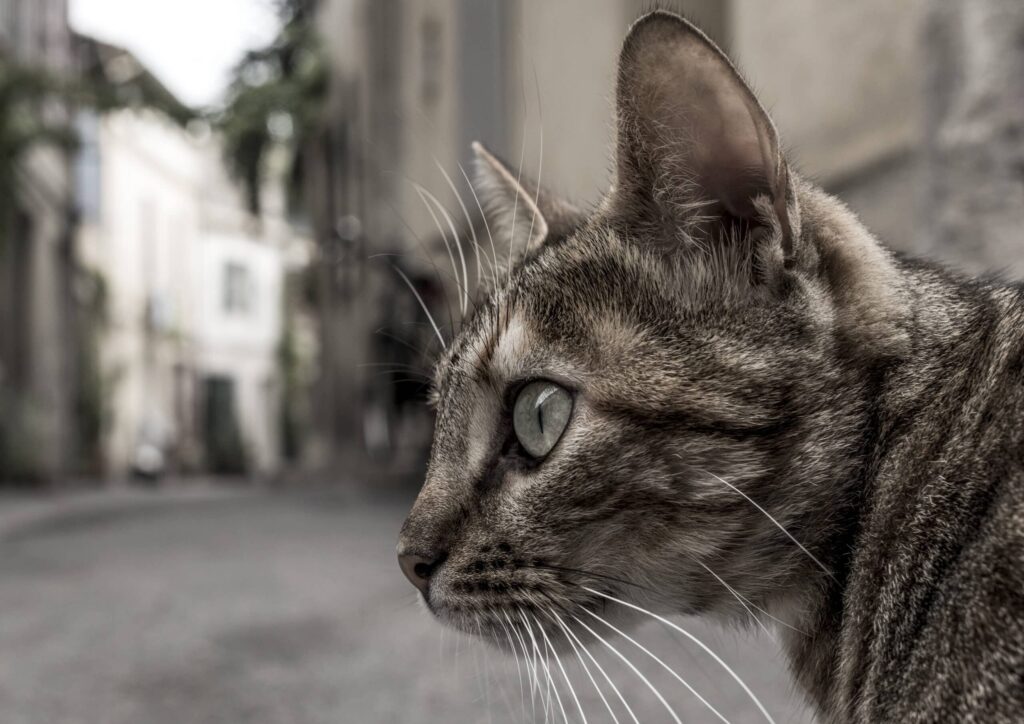
How can I stop my cat from spraying?
One of the most common feline behavioral issues cat owners face is spraying. This article answers the question, “How can I stop my cat from spraying?”
One day, you may discover your feline friend has decided to defecate or urinate outside their litter box. If it happens once, it may be nothing more than an accident. If it keeps happening, you’ll need to address this sometimes puzzling behavior.
Why is your cat “doing its business” outside the litter box, and what can you do about it?
It’s important to remember that there’s almost always a reason behind this type of behavior. Your cat isn’t being naughty, spiteful, or otherwise exhibiting human-like disobedience. In this article, we’ll explore some common factors that lead to this behavior and provide potential solutions to address the issue.
Is it the litter box?
An inadequate litter box may, in and of itself, be the cause of the issue. Cats are naturally clean animals and can be quite fussy. Like you and me, every cat has its own set of preferences and idiosyncrasies.
If the litter box is dirty, too small, or has an unpleasant scent, a cat may choose to avoid using it.
Litter
Every cat is unique, and choosing to eliminate outside of the litter box can come down to something as seemingly mundane as the type of litter you’re using.
Stress
Cats are somewhat nervous creatures and tend to suffer from stress. And one of the symptoms of stress in cats is spraying outside of the litter box.
Scent
The scent of another cat can cause anxiety. If you suspect this cause, a Feliway Diffuser is known to promote calm and reduce spraying.
How can you stop your cat from spraying if you find yourself in this situation?
- Ensure the litter box is kept clean by scooping it daily and completely changing it regularly.
- Your cat needs a large enough litter box that it can move around comfortably when inside.
- Purchase unscented litter.
You should have at least two litterboxes, placed at different ends of the house to reduce the risk of accidents.
If you have more than one cat, make sure you have a litterbox for each cat, plus a spare. In other words, you’d have three litterboxes if you had two cats. This helps to head off potential territorial issues.
Does your cat suffer from anxiety?
Cats are sensitive creatures and can become stressed due to various factors, such as changes in their environment, new additions to the family, or conflicts with other pets.
Create a calm and secure environment for your cat by providing hiding spots, vertical spaces, and plenty of attention and playtime. Consider using pheromone sprays or diffusers to help reduce anxiety.
If your cat is confined to your house, build several different indoor playground spaces in different rooms that allow it to run, jump, and climb. See this Pinterest Board for over one hundred ideas.
Medical issues
Sometimes, urination or defecation outside the litterbox is a sign of an underlying medical condition. Urinary tract infections, bladder stones, or gastrointestinal problems can cause discomfort and lead to a cat avoiding the litter box.
If you suspect a medical cause, consult with your vet and rule out any medical issues. If a medical condition is identified, your vet will provide a treatment plan to address the underlying problem.
Marking its territory
Cats have scent glands on their paws and may defecate or urinate outside the litter box to mark their territory. This behavior can occur when a cat feels threatened or stressed. This behavior is more likely when two male cats share the same space.
Spaying or neutering your cat can reduce territorial marking behaviors. Ensure that each cat in a multi-cat household has their own litter box and that each box is placed in a separate area to prevent competition. And ensure you observe the “one plus one” rule…
- One litterbox for each cat, plus…
- One additional litterbox.
Litter preferences
A cat may prefer one type of litter over another. This can be the smell, texture, depth, or even how it feels under its paws. When the litter does not meet its preferences, a cat may choose to eliminate elsewhere.
If you have eliminated other explanations, experiment with different types of litter to find one your cat prefers. For example, try a non-clumping type if you’re using a clumping litter. And experiment with natural alternatives like recycled paper or pine pellets.
Conclusion to “How can I stop my cat from spraying?”
When a cat defecates or urinates outside the litter box, it’s important to approach the issue with patience and understanding. You can significantly reduce or eliminate this unwanted behavior by addressing litter box issues, reducing stress, ensuring good health, and meeting your cat’s preferences.
If the problem persists or worsens, please consult with your cat’s veterinarian for further guidance and support. If your vet rules out a physical cause, employ a specialist feline behaviorist who can look for psychological cues and advise accordingly.












